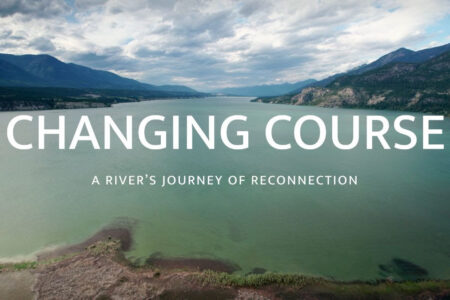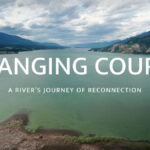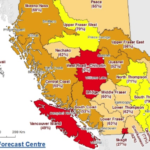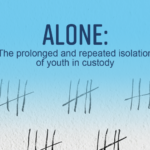Deconstructing the US Election
A quick glance over current headlines: madness and dread
“You spread your paranoia, all over this land –
Creating situations you don’t understand…
You’ve got to stop flashing pictures of the People.
Stop! Flashing pictures of the Power!”
— Tom Fogarty, Goodbye Media Man [1968]
“In times of apparent madness, the insane person adapts to reality more effectively than the rational one.”
— Jack Vance, novelist
America the experimental, the exceptional, the incomprehensible
Now we know who is the next US president, and the conversation is not begun by “if” any longer, we move to the post-mortem on how Americans can get along with one another again after an election that polarized them against one another. I for one want that to happen quickly. Let’s return to normal. But I say that with hesitation, because normal is not what it used to be.
I emailed a friend the day before the US election, asking, “Who do you like? The crazed egomaniacal populist or the clever ambitious plutocrat?” In the Arc I wrote for August, I said I had as many reservations about a Clinton presidency as I had for Trump’s, although he had yet to make some of his worst outbursts at that early date; the leadership of neither offered me peace of mind. The exact sentence from that column: “I am not more anxious about his Presidency than I am about hers.”
Taken all in all, I still stand by that. The choices were awful. There could be no win for the kind of improvement for American, and global, society that I most ardently desire, no matter which of the two became President.
Malcolm Gladwell said in a CBC interview that Americans have so much more in common than the things that divide, that good sense and common ground will reassert themselves. He is a clever analyst, and one can hope he is right.
Charles Eisenstein, a thinker with deep insight into consciousness and political behaviour, strikes a very sombre note in his blog, warning that the election’s polarizing effect will not be over soon. Civil war begins with people feeling hatred for “the other side” and closing their minds to other perspectives, he reminds us. He is not often so gloomy; the election has depressed him.
This election will not make America great again; it has already made Americans hate again.
American politics and history have occasionally provoked observers to say the USA is uniquely incomprehensible, and Americans seem to agree when they endorse “American exceptionalism” as the key to their past and present. One unique features of the system that the Founding Fathers instituted is the Electoral College. Any decent history text will inform one that this institution exists as a means for keeping a rein on the “passions of the People.” The Fathers were Men of Reason, determined to be rational in designing the US Constitution; they had a prejudice where the electorate is concerned: The masses are prone to be irrational and unenlightened.
Thus, it is not peculiar in the US for a winning president to lose the popular vote yet win in the College. That happened with George W. Bush and again with Trump. Clinton narrowly won the popular vote.
The Global Consciousness Context
For myself, putting the US election in context with world trends, I conclude that the oddness, extremism, and dreadfulness of Americans’ electoral behaviour this year, is one more symptom that planet earth and its dominant species are in crisis. As the human world experiences fear and sadness over climate change, “weather bombs,” human misery and natural disasters, and we react emotionally to war both conventional and terrorist, humans will manifest their ill feelings by behaviour not hitherto common.
I am repeating myself, I know, when I say we all feel each other’s pain. The living world is a connected tissue of consciousness. The poet John Donne put it very well four centuries ago in his sermon, “No man is an Island.” To that I must add, it is not only humans who are linked in the web, but all sentient beings.
Death in a BC high school: madness, chaos, fear
What happened in an Abbotsford high-school to two teenaged girls, at the hands of an insane stranger who attacked without cause, makes any feeling person ache with compassion for the people who love them. The event leaves one experiencing a sense of chaos and lack of reason in our human world.
Mental health issues and drug addiction in the societies of the affluent West must seem beyond explanation for people in lands much less blessed.
Why are insane people wreaking such awful pain as this killer did in Abbotsford, or the man who shot a Canadian soldier at Ottawa’s cenotaph in 2014?
Why is drug addiction so rife in wealthy Western lands?
Why are so many homeless roaming our cities, many of them mentally unbalanced?
Why is poverty so threatening and inequality of wealth so blatant in nations such as Canada, where there is easily enough for all?
Violent crime perpetrated by mentally-ill individuals may not be more common than used to be the case. It seems that way, and our unsubstantiated perception is important. One feels sadness for what seems to be, whether “objective fact” supports the seeming. One must treat feelings as facts too.
Let’s go to Mars, take humanity to the stars
Absorbing reports from around the world, of human actions and natural events, I react with dismay. Then when I hear knowledgeable people making urgent cases for humanity going off-planet, to Mars and other nearby bodies in the solar system, I shake my head. How is that scientific effort, how is its enormous cost, a solution to the human catastrophes we have wrought upon this planet where we evolved?
Humanity must resolve its challenges as a species here where we live now.
We must become something other than what we have been, for what we are is the reason for the world being in crisis.
Fleeing, from messes we’d prefer to leave behind rather than confront, is a pattern of human history. There is no new place on earth now to flee to, no new America in 1492. Fleeing to Mars is not a solution. In karmic terms, humanity has not earned the right to go to a new habitat and start over.
Either we figure out our spiritual and moral problems at home, or we follow countless other species who failed to solve survival challenges. We go extinct after a fairly brief experiment with consciousness and dominance on earth.
China, India, Russia: infected by Western ways, formed by unique history
As an historian, I remind myself to be aware that this moment in history may not be as unique as it seems, and to ask myself whether other civilizations than Western have faced times when the future seemed so dark. I ask, I investigate, and I have an answer that satisfies me: no.
No other civilization than this one, the global civilization structured by Western economics, politics, military power, and material culture, has ever faced such a time of crisis. Because it is the West that has arisen to planetary dominance, and no other ever did that. The challenges are unique. Solutions must be too.
China comes to mind, and India too, as lands with ancient, deep roots in histories quite different from ours and every bit as civilized. But they have become absorbed into our orbit, and not ours into theirs.
The British ruled India and made it an extension of European order in the nineteenth century. India today boasts of the size of its new middle class that is “proof” it is catching up with its former imperial master. The profoundly Euro-centric philosophy and methodology of “Marxism” – Marx would have called it dialectical-historical materialism – became enthroned in China by military and political victories of Mao Zedong; in the last three decades economic markets and global structures created by the West have been grafted over the Marxian Chinese state and society.
The Chinese and Indians measure their “progress” by the same materialist standards as the West does. Getting rich has become their obsession, as it was ours for so long. Their aspiring, upwardly-mobile people want what we have had since the late nineteenth century, a democratic, consumerist culture.
Those two ancient nations have still their traditions, religious and spiritual, cultural and philosophical, but none of those can respond to the crises facing our planet and our species without Western leadership. We made the dominant world order. There is only one “Science,” only one technological economy.
The old Soviet Union was half-in and half-out of the West, with one foot in Europe and Marxism, one foot in Asia and Tsarism, but as an alternative path for the global order it never stood a chance against the Euro-American option. Soviet communism was horribly mutated at birth in 1917 by the fact of Russia being at war with Germany, and then Stalin perverted the course of socialism by his totalitarian social engineering. As a rival to the USA, the USSR disappeared in 1991, the very year America led a willing coalition of UN states to war against Iraq. President George H. W. Bush said at the time of that crisis, “Saddam must learn that what we say, goes.” Pax Americana had arrived.
Syria, I.S., Africa: illustrating violence in a new key
In this year’s Massey Lectures delivered by Jennifer Welsh and broadcast on CBC, entitled “the return of History,” Professor Welsh makes the case that some serious regression has occurred in the West, a sliding backward into problems once believed to be near solution. One of the regressions is the return of “barbarism,” when she refers to how wars are conducted. It is hard to deny her argument; the savagery of the war in Syria and the Islamic State, as well as in African violence (e.g., Sudan, Somalia, Nigeria, Liberia, Rwanda) has reached new depths of horror. It might once have seemed that international laws and treaties to restrict certain kinds of weapons, to ensure the safety of civilians, to protect the rights of soldiers to humane treatment, was slowly gaining ground since the Viet Nam War. But what happened in the Balkans during the 1990’s, in Iraq, Afghanistan, and the places just named above, are evidence to the contrary.
The West has a tradition of attempting to “civilize” warfare with treaties since the seventeenth century. The UN and World Court try to bring war criminals to justice, but powerful states like the USA and Russia refuse to recognize the right of the Court to try their citizens. US drones strike targets with no fear of reprisal, and Russia helps Assad in Syria with no fear of punishment. No one yet has come up with a way to end the Syrian war, and IS will fight with all the atrocious means at its disposal before it is annihilated. IS exists because of the West’s geopolitical manipulation of the Middle East, including the establishment of the colonial state of Israel.
When the West decided on regime changes in Iraq, Afghanistan, and Libya, the results have been dismal. The West cannot make the world conform to its design for law and order, although in the imperialist decades before WWI the great powers were capable of that. There are treaties urged now by the UN on all nations to enshrine “the responsibility to protect” civilians, non-combatants, refugees and children in war zones, but there is no global police force capable of compelling nations to obey these laws of war. Today, cruelty, slavery, and torture in war is endemic. Professor Welsh has convinced me, barbarism is alive and thriving in the world’s conflict zones.
For me this sad fact is just one more symptom of planetary pathology in our very troubled times. Vile behaviour is no surprise in a context of unstable minds. Unstable minds are adaptive in unstable global material conditions.
Western privilege besieged by disenfranchised populations
War causes many changes; people on the move away from war are highly visible sources of change, as they search for a place of refuge. History has plenty of examples of what might happen when masses of humans migrate.
When the West produced a surplus of impoverished peasants, dispossessed and unwanted by the landlord and capitalist classes who ruled Europe, they disgorged millions of these desperate folk overseas to the New World, to Australia and New Zealand, and to South Africa. America, Canada and three English-speaking nations in Afro-Asia, came into being. The new nations made by colonialism reside on the land and over the corpses of aboriginal peoples dispossessed and eliminated by the settler culture, the settler states.
Now the nations of Africa and Asia and Latin America, overpopulated and underdeveloped, are trying to follow the golden path to the West. Europe is in crisis due to the refugee and immigrant challenge from the Middle East and Africa. The West does not want to share its land and social space, for Westerners feel, quite sensibly, that if all the refugees were accepted, there would not be enough to go around and still maintain a high material standard of living. Overpopulation is a guarantee of deteriorating living standards.
Americans who responded favourably to Trump’s clear message that he would severely restrict immigration, feel that there is a connection between their hard lives of precarious employment and declining living standards, and the competition for opportunity that immigrants represent. I simply do not have the hard data to know whether this perception has a basis in statistics to show employment opportunity is diminished by a glut of workers seeking jobs. But Professor Welsh, in her final Massey lecture on the topic of social inequality, presented compelling evidence that the poor are poorer and the rich richer in the USA since the 1990’s. And it is a cumulative problem.
White man’s burden: downward social mobility in America
Michael Moore, a white man and radical-liberal filmmaker, posted comments the day after US balloting: he advises that people must stop saying they are “shocked and stunned” by the defeat of their liberal candidate (Clinton) and just admit they have lived in a bubble where they were unaware of the miseries and desperation of their impoverished neighbours. Those desperate neighbours went to the polls for Donald Trump. They want him to help them.
It was reported Trump got 58% of the votes of whites, to Clinton’s 37%. A black male news reporter called the election result “a white-lash” by white Americans against the changing complexion of the USA, partially due to their experience of an African-American presidency for the last eight years. The evidence that America’s working class and middle class never recovered after the 2008 Wall St. is substantial. Downward mobility for these people, while the top 10% of income earners have monopolized 90% of income growth since 2008, means there are indeed a great many desperate white working Americans. A fine analysis of the abyss opening, between the small wealthy professional elite and the masses, is to be found in a book by Thomas Frank, Listen, Liberal.
A trajectory in American politics: three points on the arc
I have examined how much I contributed to the low quality of the electoral conversation by my own personal social-media posts, and I have to admit I have not exerted myself to deflate the hyperbole and hatred. I will do better from this point onward.
I will try to summarize a pattern I see in America’s recent history. There have been three traumatic events, of which Trump’s election campaign and victory is the third. The first was 9/11 and the second was the Wall St. collapse and immediate response to it by the first African-American president.
2001
America was attacked on September 11, 2001, not only in its greatest city and the two towers that symbolized American economic and geopolitical power. The effect of that trauma was a challenge for Americans to respond to the challenge of a different perspective on their good fortune: it confronted the USA, and the West more generally, with the spectre of massive resentment by the peoples of the world who have not shared in the West’s affluence, our law and order, stable, semi-democratic government, and our material “good life.” The threat, I saw, was not just from Islam but from the sense of injustice in lands where the imperial West recently ruled and exploited the people, and then withdrew their rule in the era of decolonization – while still maintaining the West’s control of the global economy and the cutting edge of all technology and military power.
Sunera Thobani, a professor in BC, made a comment that 9/11 should not have surprised Americans; it was a natural pushing back from the wretched of the earth against the world’s capitalist superpower whose foreign policy “was soaked in blood”. She was fiercely criticized for her remark at that time, but I agreed with her. Reverend Al Sharpton, an African-American civil-rights leader, said that 9/11 was understandable, for America was a viciously unjust racist society and “its chickens were coming home to roost.” It is the karma of the West to experience the rage of those parts of the world the West has misused.
Readers might conclude that I ignore that “Islam is fighting our way of life”. Though I know it is Islamism that is at present the ideological force behind the war of the non-West on America and Europe, I see religion as less important to the cause than the injustice of the West’s global capitalist order.
Before Islam, our power was challenged by nationalism and communism. Ideology matters less than justice for the angry people outside the West’s charmed circle. Ideology is only the form, not the substance, of the hostility felt against us. The USA and Europe have been the masters of the planet for a few centuries and we have taken more than we gave back to the rest of the world’s humanity. Westerners have been the globe’s wealthy aristocracy and, as with the French and Russian Revolutions, aristocracy experiences a time when its privilege and power reaps violent consequences. “What ye sow, so shall ye reap.”
In 2001, therefore, America faced a fork in the historical road. It took the path of a typical imperial state with domineering power, and declared a war — on “terror.” All of us in the West live with the consequence of this continual hostility of some of the world toward our civilization. In 2001, we did not choose the path of creating a more just global order; we took the path of defending what we have with our massive powers of economy, politics, science, technology, and warfare.
2008
In 2008, conflict in America was internal, not coming from outside its borders. It was a blatant chapter in the history of the class war, and the capitalist ruling class won another victory. I refer to the fearsome collapse of the criminal economic and financial games played by Wall St. and other capitalist stock exchanges where illusions of wealth were created by paper manipulations unsupported by real material value. The world stood poised on the brink of a Depression more severe than in 1929, and the political classes who are servants to the rulers of capital stretched to their utmost to head off catastrophe. Their solutions saved the system, and it was not reformed. It was Bill Clinton as much as Ronald Reagan and George Bush who made possible the conditions for this near-apolcalypse of American capitalism. It was Barack Obama who was handed the crisis as his first challenge as President.
Obama brought America back into recovery, is the narrative favoured by all shades on the US political spectrum, liberal and conservative. Wall St. went back to posting huge numbers on the Dow Jones. But the recovery is, for so many, an illusion. The “jobless recovery” is one phrase that sums it up. Since 2008, as I outlined above, growth in income has gone to a tiny social minority and the rest of Americans have been spiralling in downward mobility. CBC news reported in a minor piece that in Ontario, over half of working people now are earning their living in “precarious employment”; this is an economists’ term, for low-paid, non-unionized, casual, part-time, on-call and unstable jobs that can suffer lay-offs and even disappearance due to market forces in flux.
Obama had other choices than the ones he chose; the moderate, compromising choices he made that pleased Wall St. by their leniency were not the best. Again, Thomas Frank is a good source for studies of the issue, and Naomi Klein, and several writers in Harpers magazine. The bail-outs and huge loans (never to be repaid), which saved American corporate giants, were copied in European nations too, and money was printed to support them, all on the back of enormous public debts for future generations. Some nations actually let banks fail and sent criminals to jail – Iceland is the shining example – but they were few, and insignificant. Other nations were crushed into conformity with the solutions imposed by the USA and EU: Greece and Venezuela are models of what could happen to any economy when the ruling class decide to discipline a nation with “austerity” measures to make the public pay for loans.
So, in two crises, America’s ruling class and its political servants chose not to change anything much, but to continue history as usual.
2016
Donald Trump is the face of the third crisis in less than 15 years that challenges America to find social justice or implode from the failure to do so. He is a “change agent” in the narrative of some people like Newt Gingrich. I will make no predictions of what Trump will do. But I will say what he will not do: he will not touch the fundamentals of American capitalism and social order, and violence, which marked the eight years of Obama – from the huge number of drone strikes by the US outside its territory and the internal violence of US citizens killing one another – will not be less under a Trump presidency. The failure of the messianic hopes for social justice placed on Obama in 2008 by his supporters, will be mirrored by the failure of Trump to improve the lives of the poor who voted for him in the hope he really will make them great again.
Conclusions
As I have before when I feel stymied for a summary of an Arc column, I am going out in an interrogatory mode, with a quotation from Russian prophet Aleksandr Solzhenitsyn:
“… And all of us are standing on the brink of a great historical cataclysm, a flood that swallows up civilization and changes whole epochs. The present world situation is complicated still more by the fact that several hours have struck simultaneously on the clock of history. We must all face up to a crisis – not just a social crisis, not just a political crisis, not just a military crisis – face up to it, but also stand firm in this great upheaval, an upheaval similar to that which marked the transition from the Middle Ages to the Renaissance.
Just as mankind once became aware of the intolerable and mistaken deviation of the late Middle Ages and recoiled in horror from it, so too must we take account of the disastrous deviation of the late Enlightenment. We have become hopelessly enmeshed in our slavish worship of all that is pleasant, all that is comfortable, all that is material – we worship things, we worship products.
Will we ever succeed in shaking off this burden, in giving free rein to the spirit that was breathed into us at birth, that spirit which distinguishes us from the material world?”
This is the great Russian novelist’s conclusion to a jeremiad on the spiritual failures of the West, written well before personal computers, smartphones and the internet came along to substantiate his fear of human material enslavement. I leave it to readers to explore the meaning of this gloomy view of human history, so obviously from his euro-centric perspective.

























